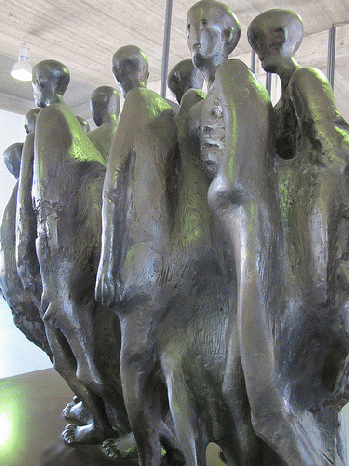4 May 2017
The arrest of a German army officer suspected of plotting the assassination of leftist politicians and high-ranking state officials has exposed the operations of neo-Nazi forces at the highest levels of the German military (Bundeswehr).
The information that has emerged thus far indicates that the suspected officer-terrorist was part of a broader network of fascists within the Bundeswehr, and that his activities were known to his superiors and covered up by them.
Most astonishing is the official reaction to these alarming revelations. They have prompted an outpouring of anger in the German media and from the establishment parties directed not at the existence of this network and evidence of its toleration by high-level state forces, but at mild criticisms of the military by Defence Minister Ursula von der Leyen.
Given the historic crimes of German imperialism in the 20th century and the current revival of militarism in Germany, it is remarkable how little attention has been paid to these developments in the American and international press.
Lieutenant Franco A., 28, was arrested last week after coming to the attention of Austrian police when he sought to retrieve a weapon hidden at the airport in Vienna. It quickly emerged that the officer had been leading a double life. In addition to his activities in the Bundeswehr, Franco A, who does not speak a word of Arabic, had registered as a Syrian refugee and been recognized as such.
He apparently intended to carry out a terror attack under a false flag. A police search of his home uncovered a list of possible targets, which included, together with leftist politicians and activists, Justice Minister Heiko Maas and former German President Joachim Gauck.
Franco A. did not operate alone. The police have recovered shells and handguns from a 24-year-old accomplice, who was also arrested. The Defence Ministry has informed the parliamentary defence committee that the arrested officer may be part of an ultra-right network within the Bundeswehr.
The reaction of the military leadership suggests that this network is far more extensive and reaches much higher than has thus far been revealed. Defence Minister von der Leyen cancelled a planned trip to the US and invited 100 high-ranking military officers to Berlin on Thursday "to discuss the implications and consequences of the accumulated cases in the Bundeswehr."
It is now clear that, for some time, Franco A.'s superiors were aware of his fascistic views and shielded him. As far back as 2014, his graduate thesis at the French military university Saint-Cyr was rejected on the grounds that it was not a scholarly work, but rather "a radical nationalist, racist appeal," calling for "existing conditions to be adapted to the alleged natural law of racial purity." The responsible French general advised Franco A.'s German superiors to sack him, but the latter concluded that he was not a racist. They hushed up the case and promoted his military career.
The neo-Nazi views of the first lieutenant were an open secret in the French town of Illkirch, where he served in a Franco-German unit. Investigators from the Bundeswehr have found "indications of right-wing and racist ideas" in his room. In addition to a swastika carved on an assault rifle, they discovered pictures glorifying Hitler's army, the Wehrmacht.
Racist and authoritarian views and the glorification of violence are not only widespread in the Bundeswehr, they are actively encouraged by its leaders. The military intelligence service is currently investigating 275 extreme right-wing suspects. These investigations are exercises in damage control. Charges were dropped against one soldier who placed a photo of a machine gun on the Internet with the caption: "The fastest German asylum procedure: rejects up to 1,400 requests per minute."
The tradition of Hitler's Wehrmacht continues to be officially cultivated in the Bundeswehr. Many barracks bear the names of military officers who were implicated in the Nazis' genocidal racial and war policies.
The universities of the Bundeswehr in Munich and Hamburg have repeatedly generated headlines by promoting right-wing extremism. In Munich, there was a controversy in 2011 surrounding the student magazine Campus when three of its editors expressed their support for the Conservative Revolutionary movement, one of the leading ideological forbears of the Nazis.
In Hamburg, the book Armee im Aufbruch (Army on the Move) was published in 2014 with contributions from sixteen officers who studied at the Bundeswehr University there and had combat experience in Afghanistan. The book is full of language typical of Nazi literature glorifying war.
(Note: You can view every article as one long page if you sign up as an Advocate Member, or higher).





